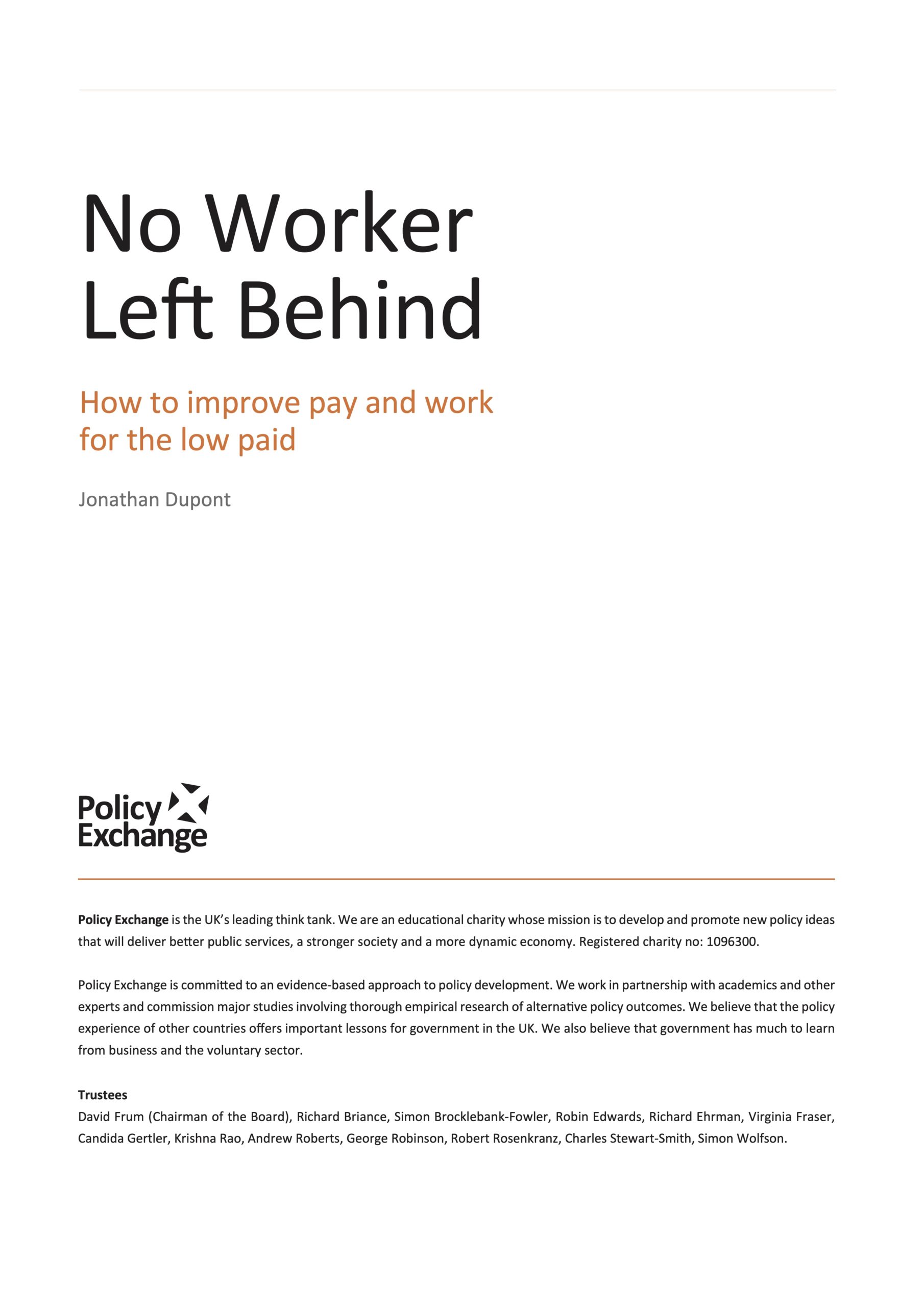
No Worker Left Behind: How to improve pay and work for the low paid
Is growth leaving the ordinary worker behind?
No Worker Left Behind argues that growth is still the best way to raise living standards. There has been no fundamental decoupling between growth, ordinary incomes and jobs, whilst inequality has been flat for twenty years.
On the other hand, the necessary but difficult economic transformation of the 1980s really did cause an increase in inequality and long term unemployment – which took active decisions by successive governments to address, reforming welfare and helping the unemployed find work. While far from certain, it is possible that future technological changes could cause similar structural changes.
The paper examines three big questions:
- What has caused the changes to ordinary wages, employment, and inequality since the 1970s?
- How likely is it that we are about to see a new wave of middle job losses and structural unemployment as automation accelerates?
- Do these changes mean that we need a new era of government intervention in labour markets?
The paper recommends three long term reforms to ensure that, whatever happens, ordinary workers share the benefits of growth:
- Everybody in full-time work should receive a Living Income. At present, a full-time worker on the minimum wage receives only three quarters of the amount the public judges needed for an adequate standard of living. The most straightforward way to change this would be to align the thresholds for Income Tax and National Insurance with the Minimum Wage, alongside targeted increases in Universal Credit. While expensive, this could be a long term aspiration for the public finances once the budget is balanced and the economy recovered.
- Everyone should have a second chance to find a new career. At the age of eighteen, every individual should be given an online lifelong learning account. This would act as the platform, portal and clearing house for other types of financial support including loans, vouchers, financial aid, transfers from savings, matching funds and scholarships. In addition, every person in Britain should have instant, unlimited and effectively free access to accredited online courses, enabling a true culture of lifelong learning and allowing anybody with a computer to retrain in a digital career.
- Everyone should have a stake in the growth of the economy. If automation does massively accelerate, it is possible that a greater share of growth will go to the owners of capital. The Government should aim to significantly raise the level of savings in Britain, creating a capital owning democracy. The Government should pilot a new generation of Premium Bonds, combining a successful historical model with the latest behavioural ideas to increase savings.

